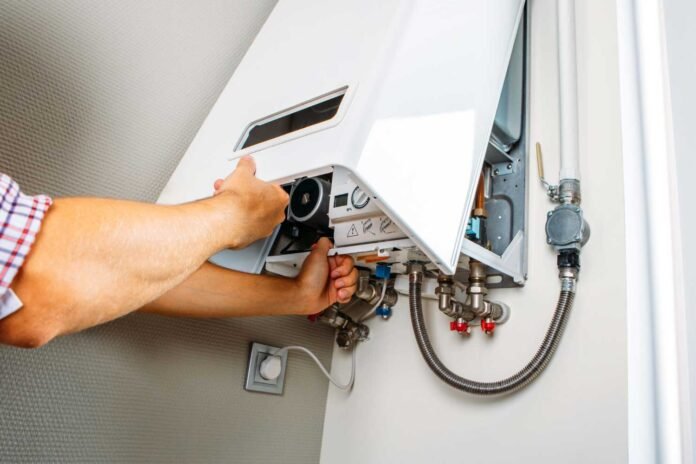Boilers are essential components in many homes and businesses, providing the necessary heat and hot water for daily operations. However, like any mechanical system, boilers can experience issues that require repair. Understanding the basics of boiler repair can help you address minor problems, save money, and ensure your heating system runs efficiently. This guide will cover common boiler issues, troubleshooting tips, and when to call a professional.
Common Boiler Problems
1. No Heat or Hot Water
One of the most common issues with boilers is the lack of heat or hot water. This problem can be caused by a variety of factors, including:
- Thermostat issues
- Low water levels
- Broken diaphragms or airlocks
- Failure of motorized valves
2. Leaking and Dripping
Leaks can occur for several reasons, such as:
- Corroded pipes
- Faulty pressure valves
- Worn-out seals
3. Strange Noises
If your boiler starts making unusual noises, such as banging, whistling, or gurgling, it could indicate:
- Air in the system
- Low water pressure
- Pump failure
- Kettling (build-up of limescale)
4. Pilot Light Going Out
The pilot light is a small flame that ignites the gas burner. If it goes out, common causes include:
- Faulty thermocouple
- Drafts
- Deposits blocking the pilot light
5. Low Boiler Pressure
A drop in boiler pressure can lead to heating inefficiencies. This can be due to:
- Water leaks
- Bleeding radiators
- Faulty pressure relief valves
Troubleshooting Tips
1. Check the Thermostat
Ensure your thermostat is set to the correct temperature. Sometimes, a simple adjustment can resolve heating issues.
2. Inspect the Pressure Gauge
Boilers have a pressure gauge that should typically read between 1 and 2 bars. If the pressure is too low, you may need to repressurize the system.
3. Bleed the Radiators
If your radiators are not heating up properly, bleeding them can release trapped air and improve performance.
4. Look for Leaks
Inspect your boiler and surrounding pipes for any signs of water leakage. Addressing leaks promptly can prevent further damage.
5. Reset the Boiler
Many modern boilers have a reset button. If your boiler is not functioning correctly, try resetting it according to the manufacturer’s instructions.
When to Call a Professional
While minor issues can often be resolved with some basic troubleshooting, certain problems require the expertise of a professional. Consider calling a certified boiler technician if:
- You smell gas: This could indicate a dangerous gas leak.
- The pilot light won’t stay lit: This might suggest a more serious issue with the thermocouple or gas supply.
- You notice significant leaks: Persistent leaks can damage your boiler and property.
- Strange noises persist: Continuous unusual sounds could indicate a mechanical failure.
- Your boiler is over 15 years old: Older boilers are more prone to breakdowns and may need replacing.
Conclusion
Boiler repair is a critical aspect of home maintenance that ensures your heating system operates efficiently and safely. By understanding common boiler problems, troubleshooting tips, and knowing when to call a professional, you can maintain a comfortable and warm environment in your home or business. Regular maintenance and prompt repairs can extend the life of your boiler and prevent costly breakdowns.
